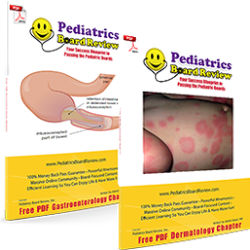Improving Pediatric Residency In-Training Exam Scores: Tip #4 – If it Ain’t Broke…
Tip #4 – If it Ain't Broke…

Improving pediatric residency in-training exam scores can be challenging. In this PBR article, we look at “tech” and whether or not new “tech” is better than tried and true methods.
I’ve always been a huge advocate of embracing technology as it relates to medicine and accelerating learning. Especially when your time is almost nonexistent, like when you're in pediatric residency, the speed with which you can locate information is a valuable asset.
The growth and availability of e-books and online study materials have expanded the number of resources available to medical students and residents. Electronic and digital resources are quickly replacing the traditional study materials which require students to spend vast amounts of time pouring over hardcopy textbooks.
Pediatrics Board Review (PBR) embraced many technological advantages, offering access to both the PBR Core Study Guide and the PBR Question and Answer book on tablets, mobile phones, and desktop computers.
The question is … Is this “E-time” well spent?
There’s a growing body of evidence that indicates that the brain absorbs information from transmitted light differently from information received from reflected light. The visual cortex processes
the information received from each differently from the other. Kate Garland, a psychology lecturer at the University of Leicester in England, recently conducted research that found subtle differences in the amount of time students take to absorb information from print compared to electronic sources.
Two groups of students were presented with the same information. Both groups learned it to a similar degree by the end of the study, but the group that studied printed media learned it faster than those who studied
digital media.
Was it because the text on a screen is read with less attentiveness than the printed word? Or because there’s a “fuller” experience with printed material? Kent Anderson of The Scholarly Kitchen likens it to the difference between staring at a place in a picture and actually living in it.
So how does this affect you? Well, if you’re studying for the pediatric in-training exam, or for an exam that’s 8 hours long, like the American Board of Pediatrics’ Initial Certification Exam, I don’t think you should be studying purely from online materials.
There are several benefits from using more traditional hardcopy books that just shouldn’t be overlooked:
- You can highlight or underline particularly valuable, or difficult to learn, sections
- You can make notes in the margins
- You can create memory aids and write, or draw, your pediatric mnemonics on the side
These techniques were essential to helping me pass the pediatric board exam. My study materials were filled with thousands of words on complex diseases, but they were written in my language. I made embarrassingly bad drawings as mnemonics, and many of them even made it into the PBR Core Study guide.
 When I revisited those same, difficult-to-understand topics, I reduced the time I needed to understand them by over 75%. Adding notes and mnemonics to your book during residency can boost exam scores and help you pass the boards.
When I revisited those same, difficult-to-understand topics, I reduced the time I needed to understand them by over 75%. Adding notes and mnemonics to your book during residency can boost exam scores and help you pass the boards.
So, those are my thoughts. I think there’s a time and place for online and hardcopy materials. For example, hardcopy books have traditionally filled physicians' libraries. In this day and age, I think that’s overkill. You should no longer have to keep a copy of your Nelson’s or your AAP Journals. They’re both available online for easy reference and they aren’t resources you’re going to need to make notes in.
When preparing for a crucial exam, I would stick to traditional methods instead of switching to new ones. Use a blended approach and maximize the benefit of each.
As a reminder, the PBR No Brainer includes both hardcopy books as well as online versions of both the study guide and the Q&A book.
Whether you choose PBR or another guide, ensure you have a reference for frequent use in your pediatric residency. Avoid systems that don't offer a mix of traditional (hardcopy) and modern (digital) options.
* For to see a list of all of the previous PBR tips for increasing residency in-training exam scores, visit “Can I Improve Pediatric Residency In-Training Exam Scores For Myself? Or For My Program?“
Have you ever opted to buy a hardcopy book instead of a digital one? Or opted to buy a hardcopy book in addition to a digital one? If so, why? I'd love to hear about the experience. Please share your thoughts at the bottom of the page!
Interesting Related Articles
The Reading Brain in the Digital Age: The Science of Paper versus Screens
Do E-Books Make It Harder to Remember What You Just Read?

Watch Your Free Video Training Session Now
Learn HOW to Answer Board Style Questions &
Be a Better Test Taker



